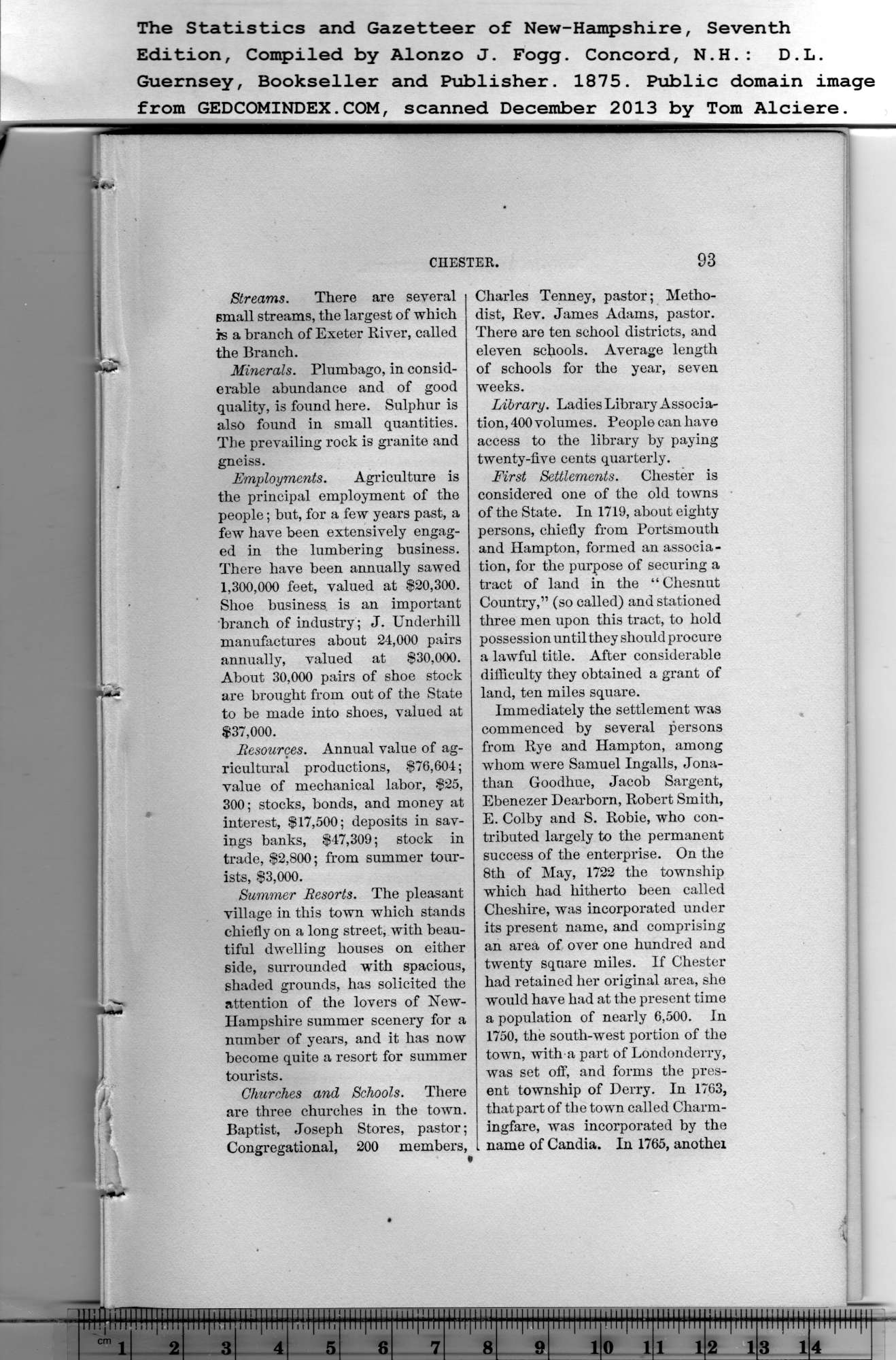|
Streams. There are several
small streams, the largest of which
is a branch of Exeter River, called
the Branch.
Minerals. Plumbago, in consid-
erable abundance and of good
quality, is found here. Sulphur is
also found in small quantities.
The prevailing rock is granite and
gneiss.
Employments. Agriculture is
the principal employment of the
people; hut, for a few years past, a
few have been extensively engag-
ed in the lumbering business.
There have been annually sawed
1,300,000 feet, valued at $20,300.
Shoe business is an important
branch of industry ; J. Underhill
manufactures about 24,000 pairs
annually, valued at $30,000.
About 30,000 pairs of shoe stock
are brought from out of the State
to be made into shoes, valued at
$37,000.
Resources. Annual value of ag-
ricultural productions, $76,604;
value of mechanical labor, $25,
300; stocks, bonds, and money at
interest, $17,500; deposits in sav-
ings banks, $47,309; stock in
trade, $2,800; from summer tour-
ists, $3,000.
Summer Resorts. The pleasant
village in this town which stands
chiefly on a long street, with beau-
tiful dwelling houses on either
side, surrounded with spacious,
shaded grounds, has solicited the
attention of the lovers of New-
Hampshire summer scenery for a
number of years, and it has now
become quite a resort for summer
tourists.
Churches and Schools. There
are three churches in the town.
Baptist, Joseph Stores, pastor;
Congregational, 200 members, |
Charles Tenney, pastor; Metho-
dist, Rev. James Adams, pastor.
There are ten school districts, and
eleven schools. Average length
of schools for the year, seven
weeks.
Library. Ladies Library Associ a-
tion, 400 volumes. People can have
access to the library by paying
twenty-five cents quarterly.
First Settlements. Chester is
considered one of the old towns
of the State. In 1719, about eighty
persons, chiefly from Portsmouth
and Hampton, formed an associa-
tion, for the purpose of securing a
tract of land in the “ Chesnut
Country,” (so called) and stationed
three men upon this tract, to hold
possession until they should procure
a lawful title. After considerable
difficulty they obtained a grant of
land, ten miles square.
Immediately the settlement was
commenced by several persons
from Rye and Hampton, among
whom were Samuel Ingalls, Jona-
than Goodhue, Jacob Sargent,
Ebenezer Dearborn, Robert Smith,
E. Colby and S. Robie, who con-
tributed largely to the permanent
success of the enterprise. On the
8th of May, 1722 the township
which had hitherto been called
Cheshire, was incorporated under
its present name, and comprising
an area of over one hundred and
twenty square miles. If Chester
had retained her original area, she
would have had at the present time
a population of nearly 6,500. In
1750, the south-west portion of the
town, with a part of Londonderry,
was set off, and forms the pres-
ent township of Derry. In 1763,
thatpart of the town called Charm-
ingfare, was incorporated by the
name of Candia. In 1765, anothei |
